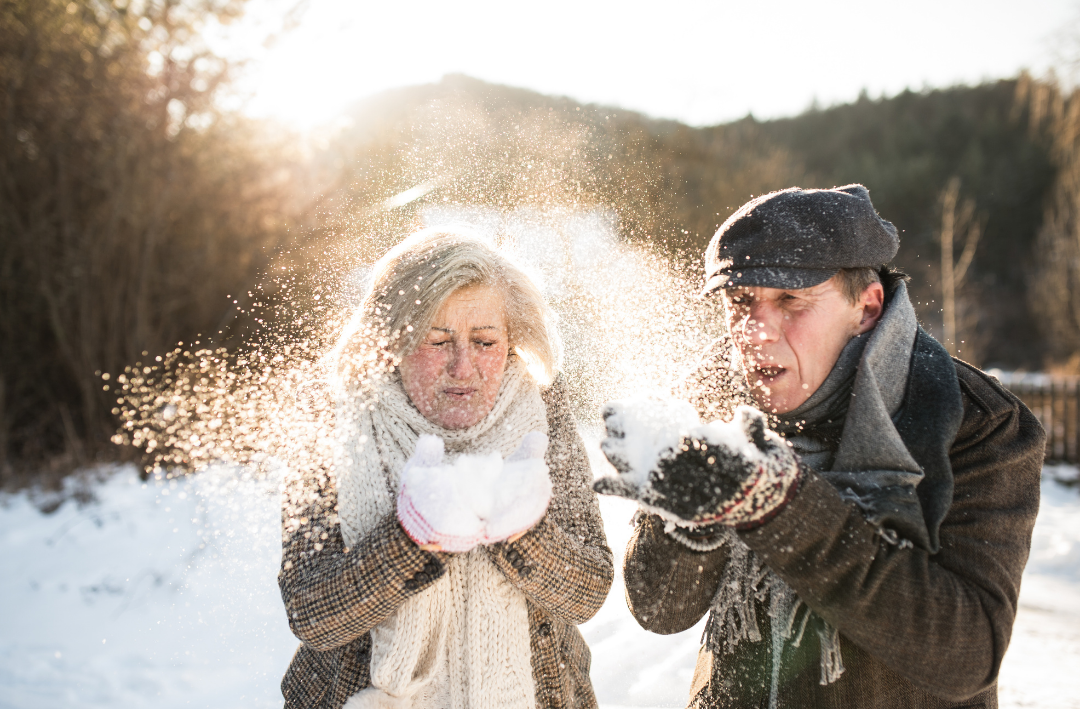Prepare for a Winter of Shivers, predicts the 2022 Old Farmers’ Almanac. Bone-chilling temperatures are expected across much of the United States.
The AccuWeather forecast notes that folks across the Great Lakes and north central U.S. should brace for a colder than normal season, with bitterly cold air and above normal snowfall.
With the meteorological start of winter occurring on Dec. 1, please remember that cold weather can cause hypothermia and older adults are especially vulnerable. According to the National Institute on Aging, older adults have a diminished ability to endure long periods of exposure to cold temperatures. They often make less body heat because their metabolisms are slower and because they tend to be less physically active. Some medications, including over-the-counter cold remedies, and certain diseases such as diabetes, thyroid problems, Parkinson’s disease and arthritis can make it harder for your body to stay warm.
Some older adults can even develop hypothermia after relatively mild cold weather or a small drop in temperature.
With hypothermia, your body temperature drops to dangerously low levels. Among older adults, significant health problems can occur when body temperature drops below 95 degrees. Hypothermia can cause a heart attack, problems with your kidneys, and damage to your liver. It can cost you your life.
Based on information from the National Institute on Aging and the Centers for Disease Control and Prevention, here are some things you can do:
10 Steps You Can Take
- Set the temperature in your home or apartment to at least 68 degrees. Be sure to check the temperature often. If you are concerned about being able to afford the cost of heating your home or apartment, you may be able to get help paying your heating bill through the Low-Income Energy Assistance program. The requirements can vary from state-to-state. Here is a link to a website with more information. You can also contact the National Energy Assistance Referral Service at 1-888-674-6327 (TTY 1-866-367-6228) or e-mail energyassistance@ncat.orgto get more information.
- Eat well-balanced meals. Do not drink alcoholic or caffeinated beverages as they cause your body to lose heat more rapidly.
- Dress in layers as the air between the layers helps keep you warm. Wear wool, silk or polypropylene inner layers because these fabrics hold heat in better than cotton. Wear a hat or cap.
- Wear long underwear under your clothes. Throw a blanket over your legs. Wear socks and slippers.
- Use extra covers and wear a cap to bed.
- Stay inside when it is very windy outside. A high wind can quickly lower your body temperature.
- Find ways to stay active.
- Talk to your doctor about any health problems and medicines that can make hypothermia a special problem for you.
- Ask relatives, friends and neighbors to check on you frequently, especially when temperatures are extremely cold.
- Know the signs of hypothermia and watch for them.
Signs of Hypothermia
– Pale skin, cold feet and hands.
– Puffy or swollen face.
– Shivering.
– Lower volume of speech; slurring words.
– Acting sleepy.
– Anger or confusion.
– Trouble walking or moving.
– Clumsiness.
– Stiff or jerky arm or leg movements.
– Slow, irregular heartbeat.
– Slow, shallow breathing.
– Blacking out; loss of consciousness.
If you think someone has the signs of hypothermia, call 911 and get medical attention immediately.
Until medical help arrives, get the person into a warm room or shelter, if possible. Wrap the person in a blanket. Do not rub the person’s arm or legs; do not use a heating pad; and do not try to warm the person in a bath.
In most of the senior living, assisted living and memory care communities Gardant operates, the apartments feature individually controlled heat and air conditioning so residents can control the temperature to their taste. The cost is included in the monthly fee.
Staff is on-duty 24/7. They check on residents and provide them with the help and personal assistance residents need.
To find a Gardant-managed assisted living community near you, click on www.gardant.com/locate-a-community/






